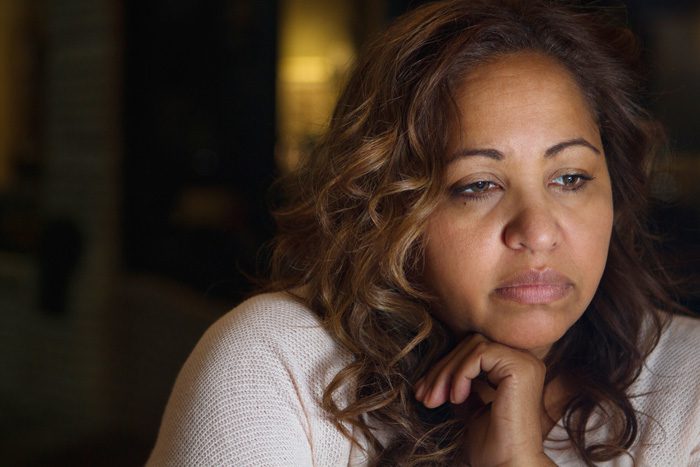 All emotions and feelings have an equal opposite.
All emotions and feelings have an equal opposite.
Just as every human being has felt happiness, we have all felt sadness. Without one, we would not realize the other. Strong feelings of sadness are usually fleeting. But for someone suffering with depression, negative feelings become overwhelming, interfere with daily life, and cause deep pain. Depression can range from mild to severe and often co-occurs with substance abuse disorders, as the individual with depression may self-medicate to feel better. Depressive disorders are a leading form of disability in the United States and carry a high risk of suicide.
According to the National Institute of Mental Health, depression affects about 6.7% of the U.S. population. Depression is caused by a combination of biological, environmental, psychological, and genetic factors. The seven major causes of depression are:
- Feelings of hopelessness caused by early childhood trauma;
- Imbalance of chemical neurotransmitters in the brain (this can be genetic or caused by substance abuse);
- Marriage to the wrong person;
- Feeling trapped in a hopeless situation with no way out;
- Omega-3 deficiency;
- Sudden realization of the absurdity of life;
- Guilt, shame, disappointment, frustration, grief, heartache, remorse, or a loss of some kind.
There are nine types of depression:
Clinical Depression
Clinical depression is also called Major depression. Individuals with clinical depression experience feelings of hopelessness, sadness, irritability, changes in sleep or eating habits, trouble concentrating, and thoughts of suicide that last for longer than two weeks.
Postpartum Depression
Postpartum depression effects up to 16% of new mothers. It is characterized by feelings of sadness, loneliness, hopelessness, fears of hurting the baby, and suicidal thoughts. It can occur anytime from immediately after giving birth to a few months after childbirth.
Dysthymia (Persistent Depressive Disorder)
This is less severe than clinical depression, but still very real. Dysthymia effects about 2 percent of the population. It is characterized by being in a low mood for an extended period of time. Symptoms include changes in eating and sleeping habits, fatigue, and sadness.
Seasonal Affective Disorder
Seasonal affective disorder affects 4-6% of people in the U.S. when the weather turns cold and there is less sunlight. The symptoms are: anxiety, fatigue, weight gain, and increased irritability.
Atypical Depression
This type of depression is one of the most common, yet doctors think it is still underdiagnosed. It is one of the most misunderstood forms of depression. It is characterized by feelings of heaviness in the legs and arms, oversleeping and overeating, and having relationship problems.
Bipolar Disorder
Bipolar disorder is characterized by extreme highs followed by extreme lows. It is a vicious cycle of ups and downs, affecting up to 3% of the population.
Psychotic Depression
Psychotic depression is a form of psychosis. It is a mental state in which the individual may have hallucinations and suffer from delusional thinking.
Premenstrual Dysphoric Disorder
This type of depression affects women in the second half of their cycle. It is characterized by sadness, mood swings, and anxiety. Roughly 5% of women suffer from PMDD, which is more severe than PMS.
Situational Depression
Situational depression is not a technical medical term. It is when a depressive mood occurs due to a stressful life event such as the death of a loved one, divorce, or some other loss.
No depression should be taken lightly. It is one of the most common mental disorders that can trigger a drug or alcohol addiction. However, depression is very treatable. If you think that you or a loved one may be suffering from depression, get help as soon as possible. There are many ways to overcome depression, and you or your loved one need not suffer any longer.
References:




